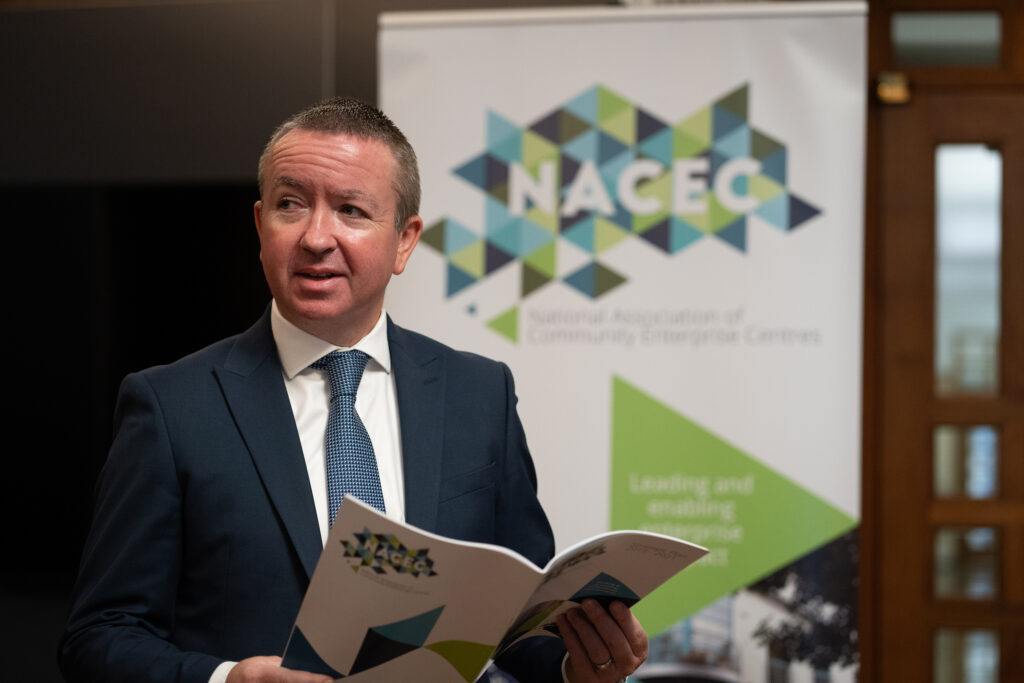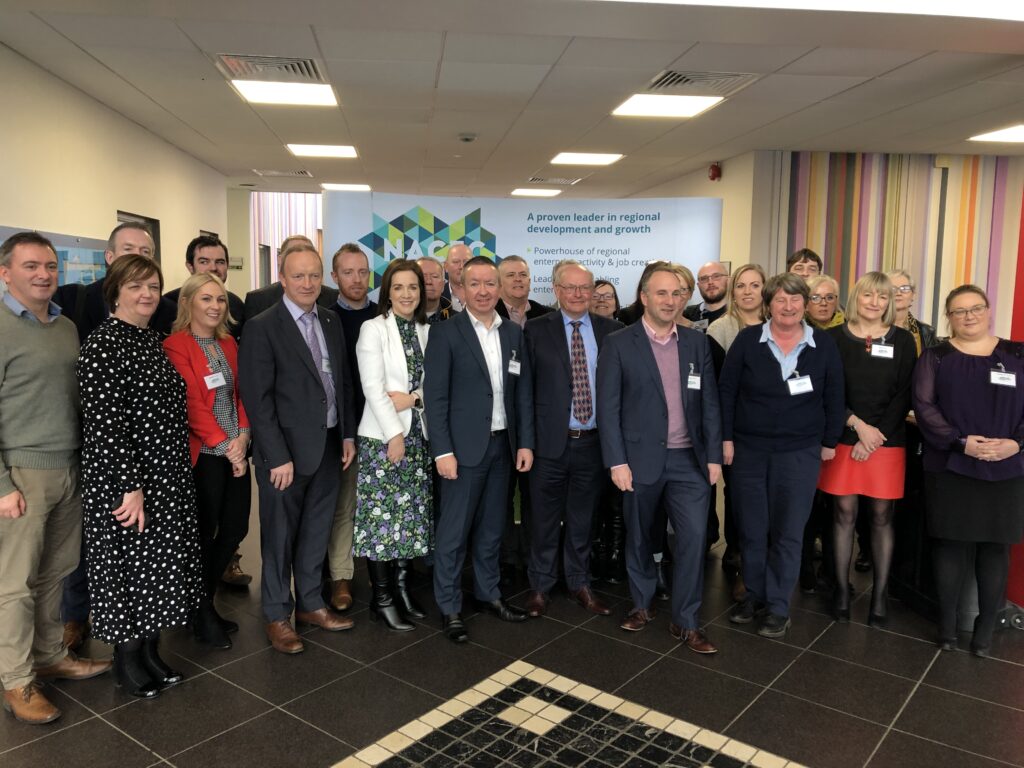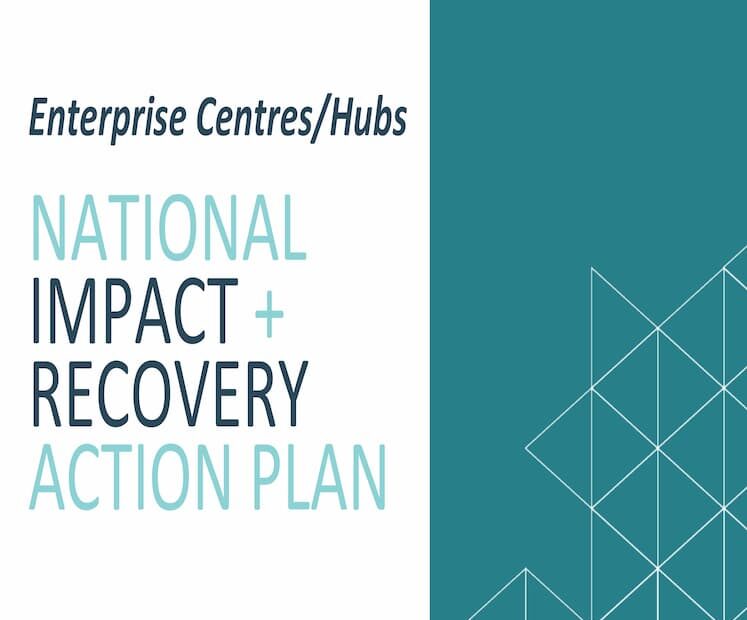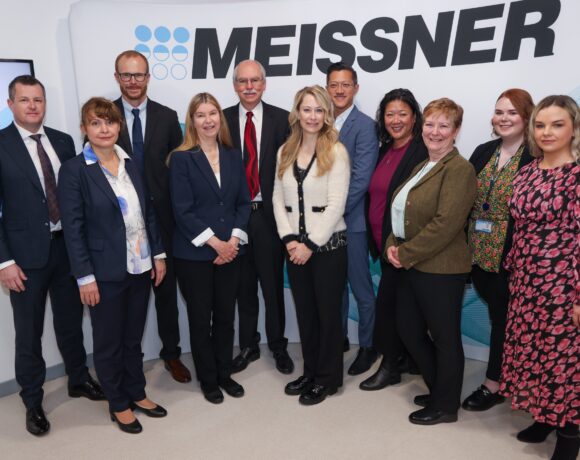Funding boost comes as NACEC unveils action plan to spearhead reboot of community enterprise centres
Community enterprise centres and remote working hubs around the country have been granted €12 million in funding as part of a Government stimulus package to allow them grow their capacity to accommodate increasing numbers of remote workers.
The multi-million euro injection comes in the same week that Ireland’s hubs have unveiled their own action plan aimed at scaling up their operations and services, particularly around co-working capacity as they respond to an anticipated demand from companies for more remote working solutions in the post-pandemic world.
The centres, many of them located throughout the regions, offer small business tenants and early stage entrepreneurs co-working spaces, access to enterprise and innovation training and supportive environments in which to establish and develop their businesses.
Most hubs have been hit hard by the pandemic, with a nationwide survey in May showing almost 88% reported a drop in income of between 21% and 80% and one-third of centres seeing some tenants closing their businesses permanently.
NACEC, the National Association of Community Enterprise Centres, has now drawn up a new National Impact + Recovery Action Plan to transform the sector through a series of stimulus measures ranging from creating new enterprise centre cluster networks to adopting a new quality standards framework and investing in digitisation and broadband connectivity provision.
This follows a series of engagements over the past three months between NACEC and key stakeholders, including five Government Departments, Enterprise Ireland, IBEC, the Small Firms Association, Tech Ireland and over 20 other organisations to map a pathway through the current public health crisis.
Already considered proven engines of entrepreneurship, Ireland’s community enterprise centres have been providing co-working and remote working space in addition to social innovation training for many years.
Now as traditional workplace dynamics have been overturned by Covid-19 and new social distancing requirements, they believe they are ideally positioned to provide a future-of-work blend, dubbed the ‘Hub-Home-HQ’ model, as companies and their employees embrace a new way of working.

“For countless businesses, remote working practices will be part of their new normal, and regional hubs are positioned to provide structured, well-connected, professional working environments that are potentially less expensive than the equivalent area of office space,” said Gary O’Meara, chairperson of NACEC and CEO of Meath Enterprise.
However, the action plan is not solely about the provision of space to work. “The creation of regional ecosystems and enterprise clusters that innovate quickly is as vital as premium workspaces,” he added.
In order to meet the new challenges and opportunities, NACEC has put forward a series of 14 actions of its own, incorporating objectives such as resourcing regional clusters, skills and talent mapping, creating a new set of quality standards to reassure users of hubs, establishing enterprise centre digitisation and broadband provision, updating training facilities and technology and committing to a climate change programme.
The country’s enterprise hubs believe they can facilitate not only SME tenants in the future but potentially also large corporate and multinational firms, providing long-term solutions beyond the pandemic for businesses keen to support a more agile and flexible workforce in the years ahead.
Mr O’Meara emphasised that while individual enterprise centres are struggling to maintain their viability in the face of the disruption caused by the pandemic, they continue to support thousands of entrepreneurs in navigating the crisis.
He said the overarching theme of the recovery plan is to future-proof the sector while navigating change. “All across Ireland, enterprise centres and hubs are working hard to devise tangible solutions that will safely and strategically get our enterprise centres back to work, and back to what we do best: enabling businesses, creating connected environments for working and co-working, and acting as powerhouses of regional enterprise activity and job creation.”

The Tánaiste and Minister for Enterprise, Trade & Employment, Leo Varadkar, TD, recently extolled the benefits of remote working, pointing out that it led to reduced business costs, a better work-life balance, less traffic, fewer emissions and time saved commuting.
He added that the concept would bring real benefits to rural Ireland in particular, with many more people able to work for large companies and public bodies from home or remote working hubs, leading to an increased spend in their local communities.
For more information see these links:
Subscribe to Council Journal
[sibwp_form id=2]
Follow The Council Journal on LinkedIn and Twitter for other relevant updates
You can also find us on Facebook













